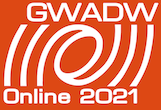Speaker
Description
Heating elements surrounding the core optics of Gravitational Wave Interferometer are used to correct the radius of curvature of the high reflectivity surface that can deviate from the nominal value because of manufacturing defects and the non-zero absorption of the laser power in the substrate and in the coatings of the test masses. The typical actuation time of these actuators (usually referred to as ring heaters) requires about 10 hours to reach the steady state; this long transient makes a significant impact on the commissioning time of the interferometer.
In this work a new strategy aiming at the reduction of the actuation time of the ring heaters is exposed together with the experimental results of the tests performed on the TeTis facility in the Virgo laboratory of Rome Tor Vergata.
By applying a time varying voltage on the ring heater, the steady state can be reached in less than an hour.

